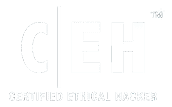The CISSP, CISM, and CISA certifications cater to different aspects of information security but aim to strengthen an organization’s overall security posture. CISSP-certified professionals are well-rounded in cybersecurity program design and management. CISM certification focuses on information security strategy development and risk management, with alignment to business goals. CISA-certified professionals specialize in IT and business system assessments and auditing, ensuring security, efficiency, and compliance.
Engaging certified professionals presents clients with several advantages, including verified expertise, strategic approaches, skilled leadership, networking opportunities, and continuous access to the latest industry trends. Clients can expect cost savings and risk reduction as these experts identify and mitigate vulnerabilities, maintain regulatory compliance and protect sensitive information.
What Is a CISSP?
CISSP certification, administered by the International Information System Security Certification Consortium (or (ISC)²), is a sought-after professional accolade that demonstrates your mastery of various cybersecurity principles, practices, and technologies. By obtaining CISSP certification, you signal to potential employers that you possess the essential knowledge and skills needed to design, implement, and manage robust cybersecurity programs.
Key Roles of a CISSP
The core of the CISSP certification revolves around eight domains encapsulating different aspects of information systems security. These domains cover a wide range of topics, ensuring you are well-rounded in cybersecurity. Let’s do a quick run-through of these eight domains:
- Security and Risk Management: Understanding risk management, security policies and regulations, business continuity plans, and legal issues.
- Asset Security: Focusing on the protection of physical and digital assets, including data classification, retention, and handling of sensitive information.
- Security Architecture and Engineering: Diving into security models, cryptographic systems, and ensuring application security.
- Communication and Network Security: Examining secure network design, network protocols, and maintaining confidentiality and integrity of data.
- Identity and Access Management: Addressing user authentication, role-based access control, and managing identities across an organization.
- Security Assessment and Testing: Implementing proper testing strategies, log reviews, penetration testing, and vulnerability assessments.
- Security Operations: Ensuring the daily operations of an organization maintain a secure environment, including incident management, intrusion detection, and disaster recovery.
- Software Development Security: Emphasizing secure coding practices, version control management, and other measures to protect software from cyber threats.
How do IT Professionals Gain CISSP Certification?
Becoming CISSP certified entails passing a comprehensive exam that evaluates your understanding of these eight domains. To sit for the exam, you need to have at least five years of full-time, paid work experience in at least two of the eight domains. A four-year college degree or an approved credential from the (ISC)² list can substitute for one year of experience.
Benefits of Engaging a CISSP-Certified Professional
When working with a CISSP-certified expert, your organization can expect numerous advantages, such as:
- Comprehensive Cybersecurity Expertise: Engaging a CISSP-certified professional gives you access to their verified skill set and knowledge in various aspects of cybersecurity. This means your organization benefits from holistic, well-rounded security solutions to protect your digital assets.
- Competitive Advantage: CISSP certification serves as an assurance of quality in the practitioner’s capabilities. With a CISSP-certified professional on board, your organization can build a robust cybersecurity infrastructure setting you apart from competitors and fostering trust among your clients.
- Access to a Global Community: CISSP-certified professionals are part of a global community of cybersecurity experts. By tapping into this network through your CISSP partner, your organization benefits from collective intelligence, best practices, and new insights to stay ahead in security trends.
- Up-to-date Security Practices: CISSP certification requires professionals to participate in the Continuing Professional Education (CPE) program. This ensures they are constantly updating their skills in line with the evolving threat landscape. As a result, your organization can rely on state-of-the-art security measures to protect your operations.
- Cost and Risk Reduction: By partnering with a CISSP-certified expert, your organization will have a security specialist capable of identifying potential vulnerabilities and effectively mitigating risks. The expert’s skills can help minimize costly incidents, saving you time and money while maintaining a secure and compliant environment.
What Is a CISA?
A CISA is a certified professional who specializes in assessing and auditing an organization’s IT and business systems. These experts ensure the organization’s tech stack is secure, efficient, and compliant by identifying any discrepancies or vulnerabilities that may expose sensitive information or lead to monetary losses. Administered by the Information Systems Audit and Control Association (ISACA), the CISA certification is a solid, internationally recognized foundation for both seasoned professionals and aspiring IT Auditors.
Key Roles of a CISA As a CISA, your detective work will mainly revolve around five key areas, known as the CISA job practice domains:
- Information System Auditing Process: Overseeing the planning, execution, and reporting of tech audits, including understanding risks, assessing the effectiveness of controls, and gathering audit evidence.
- Governance and Management of IT: Ensuring governance practices align with the organization’s objectives and evaluating IT resource allocation and management.
- Information Systems Acquisition, Development, and Implementation: Reviewing the management of IT projects, including ensuring proper controls, secure design, and robust implementation.
- Information Systems Operations and Business Resilience: Assessing the operational effectiveness of an organization’s IT systems and evaluating processes related to information security, infrastructure, and disaster recovery.
- Protection of Information Assets: Uncovering security vulnerabilities and implementing measures to maintain the security of sensitive information and information systems.
How Do IT Professionals Gain CISA Certification?
To earn the CISA certification, you need to pass the CISA exam, which assesses your knowledge and skills in the five job practice domains. To qualify for the exam, you’ll need a minimum of five years of professional experience in the field of IT audit, control, or security. A mix of experience, education, and pre-existing certifications can be used to fulfill this requirement, as per ISACA’s rules.
Benefits of Engaging a CISA-Certified Professional
When you partner with a CISA-certified expert, your organization stands to gain several advantages, including:
- Assured Expertise: Engaging a CISA-certified professional guarantees they possess the necessary qualifications and knowledge to perform high-quality IT audits. Their expertise ensures your organization’s IT systems are examined thoroughly and accurately.
- Trustworthiness: CISA certification is internationally recognized, lending credibility to the certified professional’s skills and experience. By seeking the services of a CISA-certified expert, you can trust that your organization’s IT infrastructure will be audited with utmost diligence and precision.
- Access to Specialized Knowledge: Partnering with a CISA-certified professional not only aids in identifying potential risks but also offers insights into cutting-edge best practices in IT auditing. The expert can recommend appropriate measures to strengthen your technology stack and safeguard sensitive information.
- Value for Money: Adept at their craft, CISA-certified professionals can efficiently identify vulnerabilities and security gaps, providing your organization with actionable insights. Their proficiency translates into cost savings in the long run, by proactively addressing issues before they become expensive or damage your business reputation.
What Is a CISM?
A CISM is a certified professional with the skills and knowledge required to effectively develop, implement, and manage an organization’s information security strategy. With a focus on risk management and a deep understanding of information security best practices, CISM-certified experts blend technical expertise with sound business acumen, allowing them to navigate various operational challenges effectively. CISM certification bridges the gap between information security management and the organization’s broader goals and objectives.
Key Roles of a CISM
CISM-certified professionals typically focus on four key areas to ensure holistic information security management:
- Information Security Governance: Designing and implementing an efficient governance framework to align security strategy with organizational objectives and ensure compliance with legal and regulatory requirements.
- Information Risk Management: Identifying, assessing, and mitigating potential risks while continuously monitoring and refining risk management processes.
- Information Security Program Development and Management: Establishing and maintaining an organization-wide security program, setting priorities and implementing security controls to protect critical assets.
- Information Security Incident Management: Developing and overseeing incident response processes, ensuring security incidents are effectively investigated, addressed, and reported, and facilitating continuous improvement.
How Do IT Professionals Gain CISM Certification?
To pursue the CISM certification, you’re required to pass the CISM exam which evaluates your abilities in the four domains mentioned above. To be eligible for the exam, you must demonstrate at least five years of experience in information security management, including a minimum of three years working in three or more key responsibility areas. Additionally, you must adhere to ISACA’s Code of Professional Ethics and agree to maintain the required level of continued professional education.
Benefits of Engaging a CISM-Certified Professional
Working with a CISM-certified expert offers your organization several notable advantages, such as:
- Proven Expertise: By partnering with a CISM-certified professional, you gain access to their internationally recognized knowledge and skills in information security management. This ensures your organization benefits from comprehensive security strategies aligned with industry best practices.
- Strategic Security Solutions: A CISM-certified expert is proficient in marrying technical and managerial aspects of security, enabling your organization to implement a security strategy that addresses current threats and aligns with your long-term business objectives.
- Skilled Leadership: Engaging a CISM-certified professional ensures access to an expert who possesses both technical know-how and leadership abilities. They are aptly equipped to lead and manage your security team effectively and can foster a strong security culture across your organization.
- Ongoing Education: CISM-certified professionals are committed to staying up-to-date with the latest trends and advancements in information security. As a result, your organization benefits from fresh perspectives and agile security measures that evolve to counter emerging threats.
- Risk Mitigation and Compliance: A CISM-certified practitioner identifies potential risks and implements effective risk management strategies. Your organization can confidently address various security challenges, maintain regulatory compliance, and protect sensitive information from potential breaches by engaging its services.
The CISSP, CISM, and CISA certifications attest to an individual’s specialized knowledge and skills within their respective domains. These internationally recognized certifications ensure clients that they are partnering with competent, dedicated professionals who stay current in the ever-evolving world of information security, ultimately contributing to optimal security measures for their organizations.







